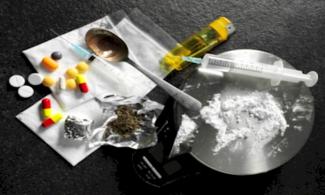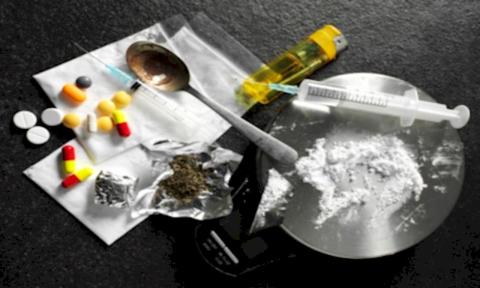
It is anticipated that by 2050 there will be an additional 14 million Africans using illegal drugs, with a total of 23 million users in sub-Saharan Africa.

Africa faces a substantial increase in illegal drug use, fuelled by organised crime and ineffective policy.
In the next 30 years, sub-Saharan Africa will see the world’s biggest surge in illicit drug users, with its share of global drug consumption projected to double.
This is according to comprehensive new research and analysis of Africa’s drug trade, policy, and future consumption trends by the ENACT transnational organised crime programme. ENACT is a partnership between the Institute for Security Studies (ISS), INTERPOL and the Global Initiative Against Transnational Organised Crime (GI), funded by the European Union. The research was released in Addis Ababa on Thursday 5 September.
It is anticipated that by 2050 there will be an additional 14 million Africans using illegal drugs, with a total of 23 million users in sub-Saharan Africa. The continent has also dominated a global expansion of non-medical use of pharmaceutical opioids, with 87% of global seizures in 2016.
East Africa will experience the sharpest increase in the proportion of its population using illicit drugs, and West Africa is set to remain the continent’s largest regional drug market.
West Africa’s role has also expanded as a global trafficking hub for drugs, particularly cocaine. The region’s drug users will more than double from about 5.7 million in 2018 to 13 million in 2050. An underground economy has developed around the production and distribution of methamphetamines, particularly in Nigeria.
Africa’s dangerous drugs phenomenon is driven by weak regulation and organised criminals operating across national borders. It is assisted by global production of cocaine and heroin to levels the 2018 World Drug Report says are the highest ever recorded.
A growing heroin economy has emerged from the international drug smuggling route down the East Coast of Africa for shipment to international markets.
Drug use threatens African health and national development, ENACT said. The drug trade, fuelled by organised crime, corrupts democratic institutions and threatens the achievement of the sustainable development goals. African consumption of illegal drugs is projected to become a public health emergency but the continent has a dramatic inability to meet the demand for treatment.
For example, 2017 data revealed that 40% of high-risk drug users in Nigeria wanted treatment but were unable to access it.
The African Union (AU) and its regional economic communities need to act urgently to address the drug challenge, said Eric Pelser, ENACT programme head at the ISS.‘Illegal drug use poses formidable law enforcement and public health problem to governments in Africa,’ he said.
Use of injected drugs like heroin risks another spike in HIV and other diseases, and the growing significance of Africa as a drug transportation hub will place enormous strain on law enforcement.
Participation in drug trafficking offers political, security and business leaders windfall profits, says GI’s Mark Shaw, an organised crime expert. ‘They can conduct electoral and security campaigns, feed patronage systems, or take a fast track to wealth and power. In turn, politicians and security leaders can offer traffickers protection or even assistance.’
African drug markets are becoming ever more sophisticated and increasingly take advantage of secure innovations such as blockchain technology, cryptocurrencies and trading platforms on the dark web.